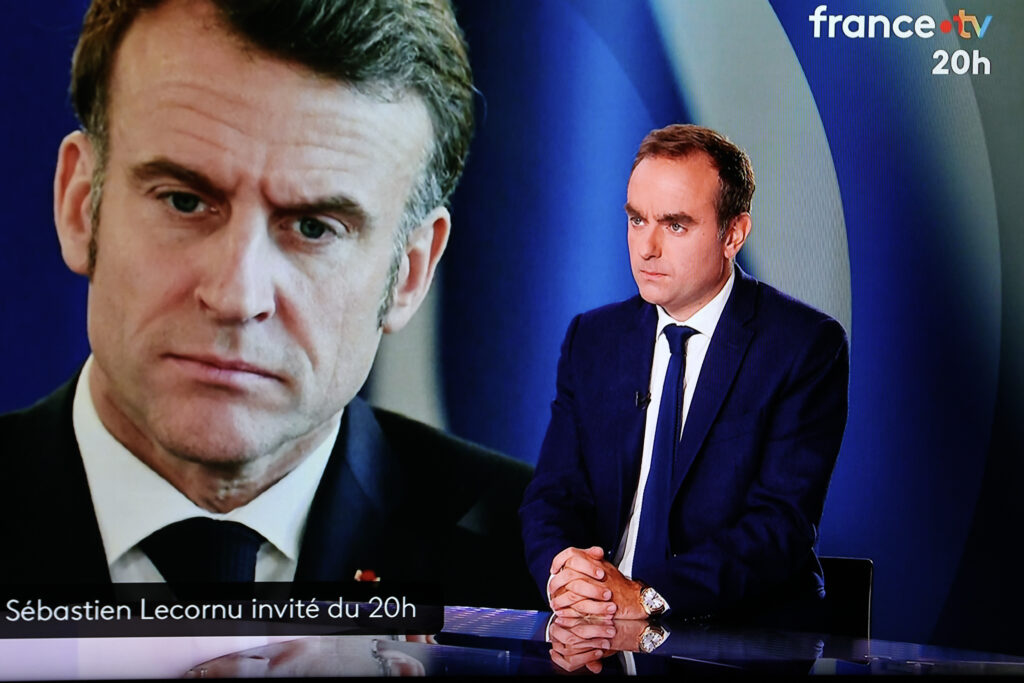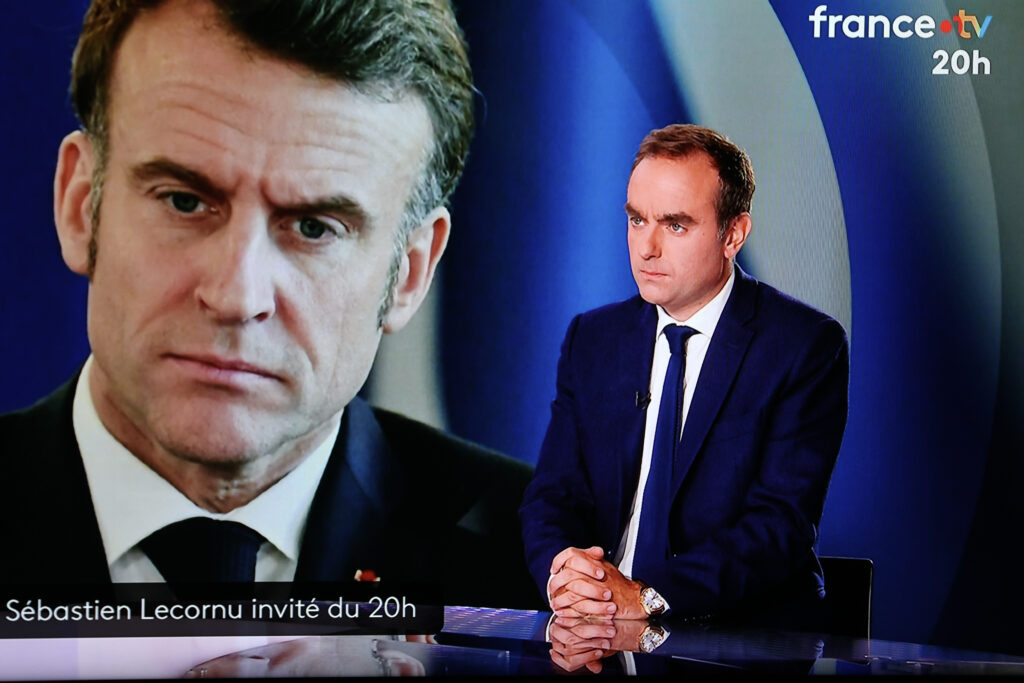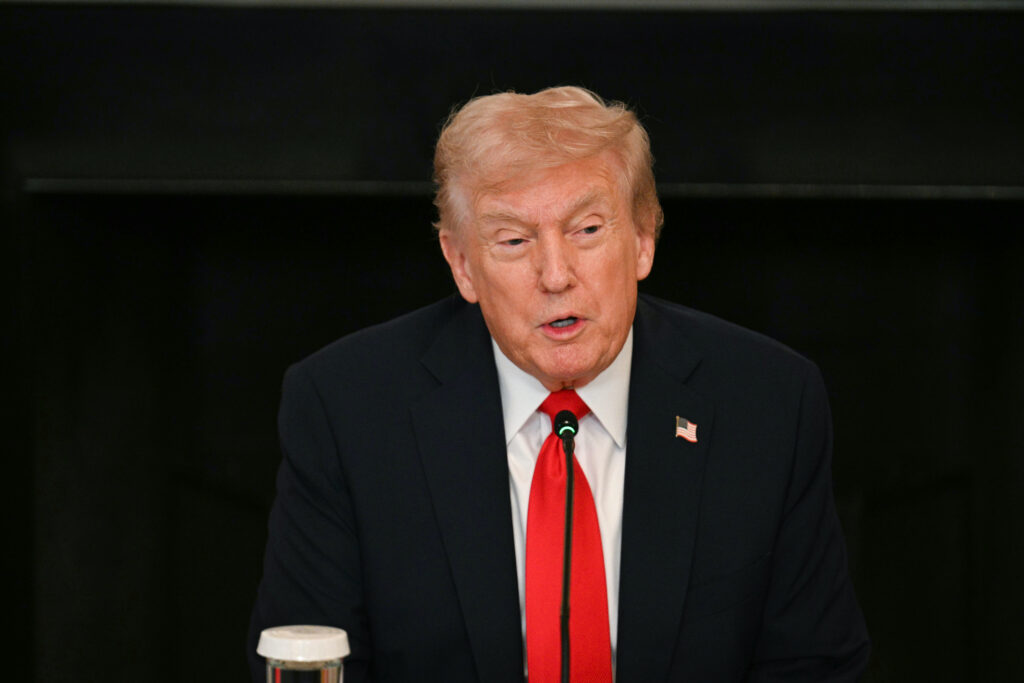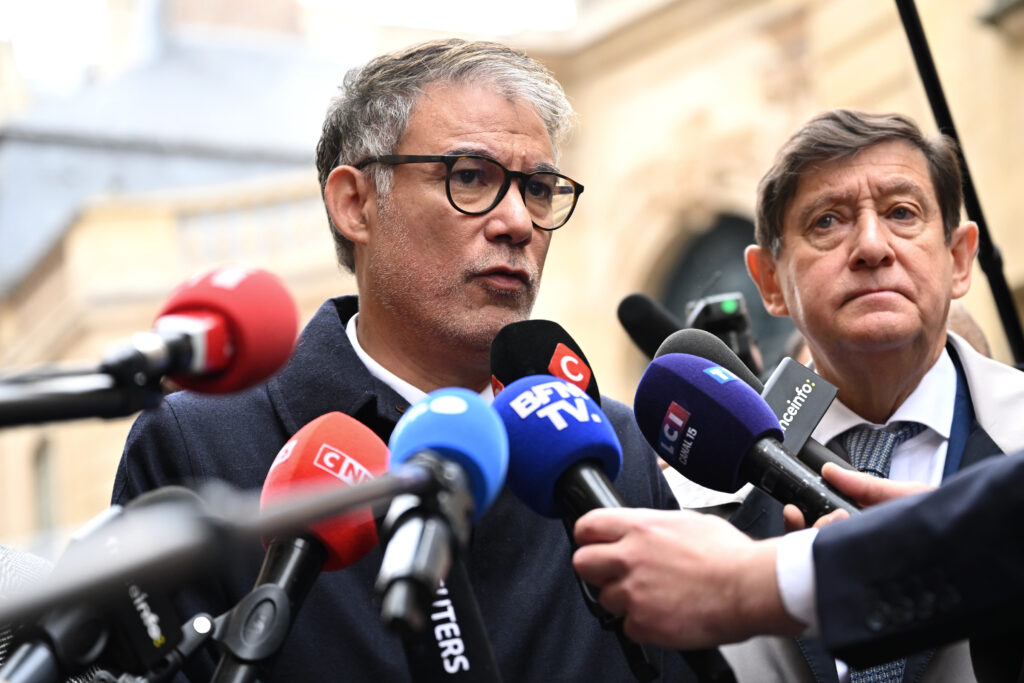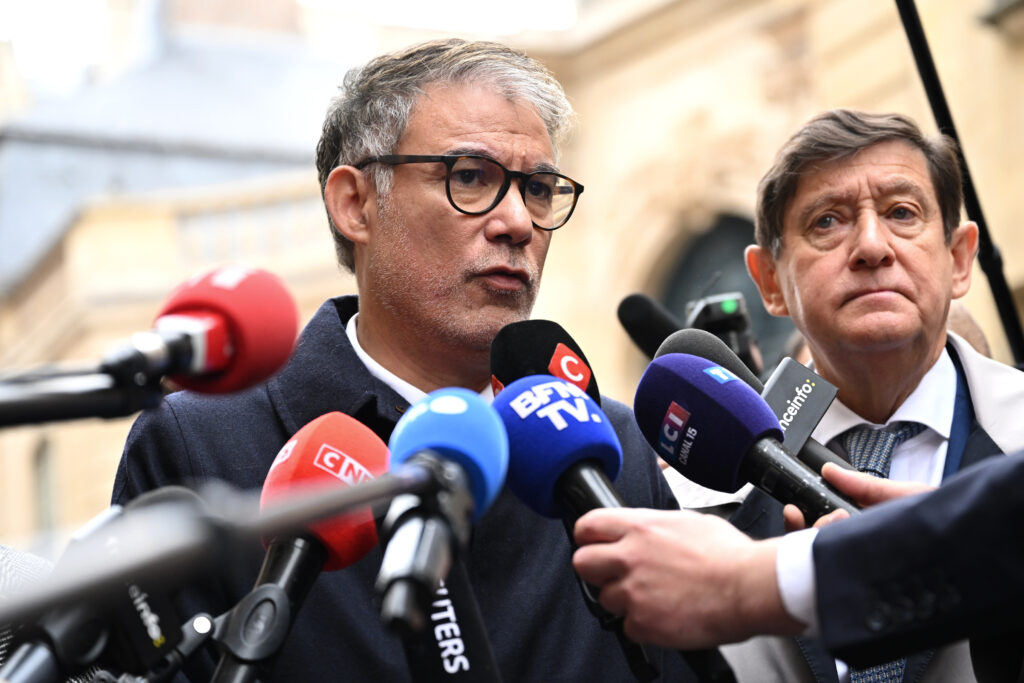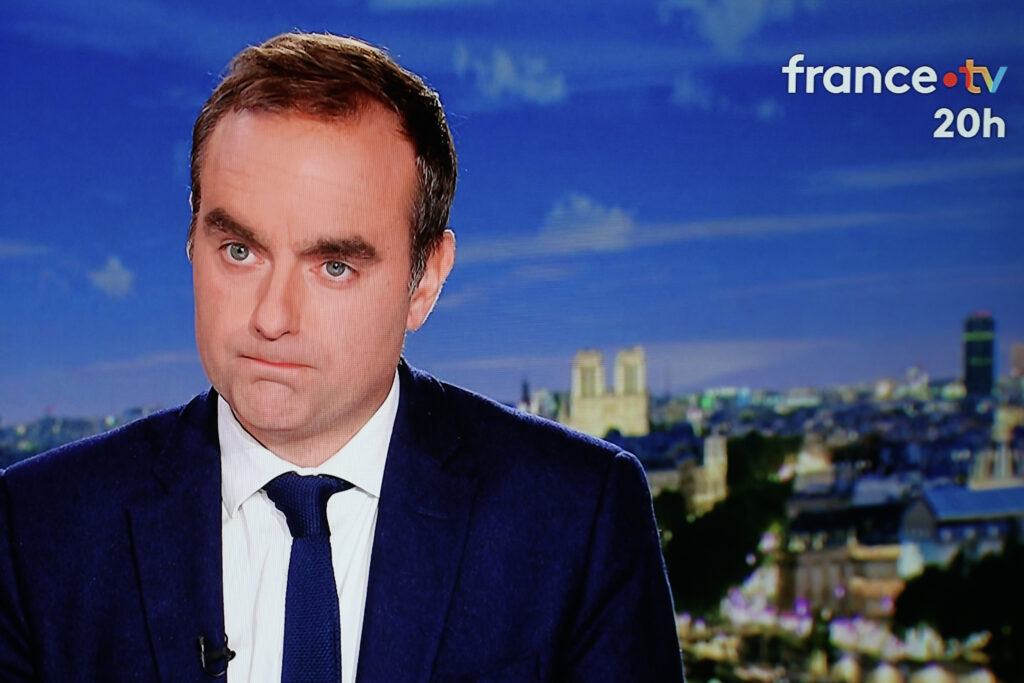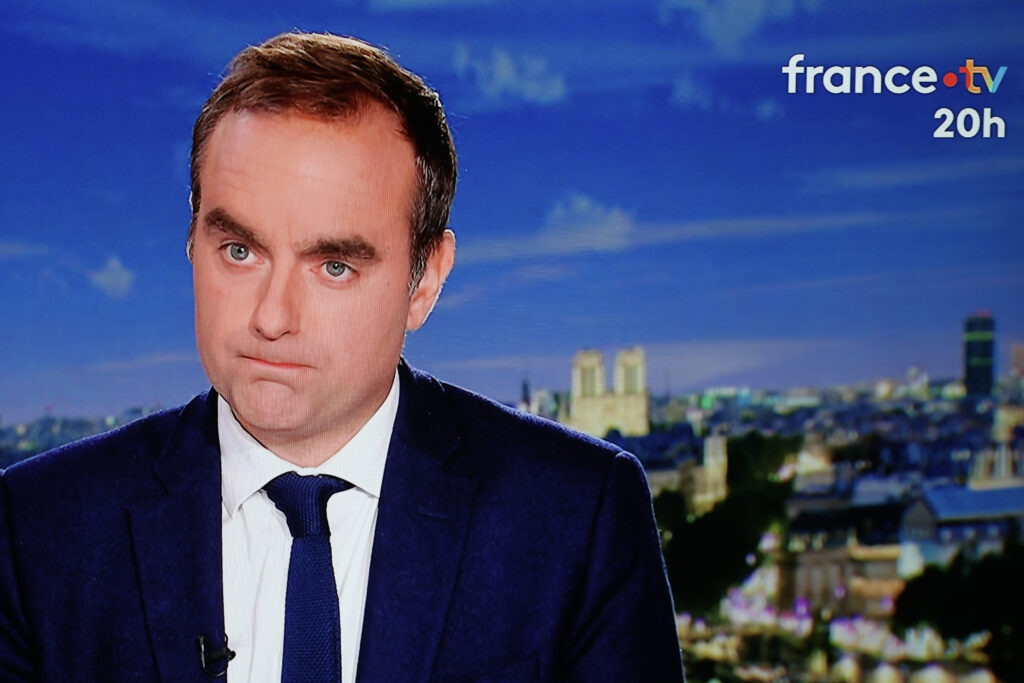Lecornu écarte la dissolution, Macron promet un Premier ministre d’ici vendredi soir
Après deux jours de nouvelles tractations avec les partis signant la fin de sa “mission”, Sébastien Lecornu a écarté mercredi l’hypothèse d’une dissolution et Emmanuel Macron a promis de nommer un Premier ministre d’ici vendredi soir.Encore 48 heures maximum de sursis pour Sébastien Lecornu, qui a démissionné lundi, plongeant un peu plus le pays dans la crise politique. Interrogé au journal de 20H00 de France 2, au sortir d’un entretien d’une heure à l’Elysée avec le chef de l’Etat, M. Lecornu a fait le compte-rendu de ses consultations avec les forces politiques.”J’ai dit au président de la République que les perspectives de dissolution s’éloignaient et que je pense que la situation permet pour le président de nommer un Premier ministre dans les 48 prochaines heures”, a déclaré M. Lecornu sur la chaîne publique.Emmanuel Macron a confirmé ensuite qu’il nommerait un Premier ministre dans ce délai. Un de ses proches n’excluant pas que le gouvernement soit aussi connu d’ici vendredi soir, sans certitude.Interrogé sur la possibilité qu’il soit lui-même reconduit à Matignon, Sébastien Lecornu a dit qu’il ne courait “pas après le job” et que sa mission était mercredi soir “terminée”.”J’ai tout essayé”, a-t-il lâché en se présentant en “moine-soldat”, sans exclure totalement d’être renommé à son poste, dont il a démissionné lundi. Il a esquissé les contours d’une future équipe “complètement déconnectée des ambitions présidentielles”, comme lui-même, après avoir fustigé ces derniers jours “les appétits partisans” qui ont selon lui précipité sa chute.- “Trouver un chemin” -A propos de la réforme impopulaire des retraites, que même son auteure Elisabeth Borne a proposé de suspendre pour obtenir une non censure des socialistes, il a affirmé qu’il fallait “trouver un chemin pour que le débat ait lieu sur la réforme”.Cette suspension coûterait en 2027 “pas moins de trois milliards d’euros”, a-t-il estimé, sans donner les chiffres pour la seule année 2026 qui sépare de l’élection présidentielle. Concernant cette ouverture sur ce totem macroniste, le camp présidentiel est loin d’être unanime. La présidente de l’Assemblée nationale, Yaël Braun-Pivet, a exprimé sa “gêne” de voir son camp “renoncer aux grandes réformes que nous avons faites”. Le parti Horizons d’Edouard Philippe – après avoir lancé une bombe mardi en réclamant une présidentielle anticipée – a manifesté une opposition catégorique à cette suspension.De son côté, la droite en fait une “ligne rouge”, selon l’entourage du patron des Républicains Bruno Retailleau.La balle est désormais dans le camp d’Emmanuel Macron, acculé de toutes parts depuis la démission précoce du gouvernement lundi, et dont une expression se fait toujours attendre. Jeudi soir, il présidera la cérémonie d’entrée au Panthéon de Robert Badinter, une parenthèse dans la crise actuelle.Interrogé sur les appels à la démission du président, y compris dans son propre camp, Sébastien Lecornu a estimé que ce n’était “pas le moment de changer”. “Cette institution présidentielle, elle doit être protégée, préservée”, a-t-il insisté.Il a promis qu’un projet de budget pour 2026 pourrait être présenté en Conseil des ministres lundi, date butoir pour qu’il soit adopté d’ici la fin de l’année par le Parlement. Mais il “ne sera pas parfait” et devra être débattu, a admis M. Lecornu, réitérant son renoncement à utiliser l’article 49.3 de la Constitution, qui permet l’adoption d’un texte sans vote, pour redonner la main au Parlement.- “Plaisanterie” -Reçus dans la matinée à Matignon, les socialistes continuent de réclamer un Premier ministre de leur camp. Le PS a toutefois pris acte du renoncement au 49.3 et d’un “assouplissement de la trajectoire budgétaire”, avec un déficit 2026 pouvant aller jusqu’à 5% du PIB au lieu de 4,7%.Si le locataire de Matignon était de nouveau issu du camp présidentiel, il s’agirait d’une “ultime provocation”, a tonné la patronne des Ecologistes Marine Tondelier.Evacuée par M. Lecornu, la dissolution est toujours réclamée à cor et à cri par le Rassemblement national, qui a décliné l’invitation à Matignon et se projette déjà vers des législatives anticipées. “Je censurerai tous les gouvernements jusqu’à obtenir la dissolution (…) La plaisanterie a assez duré”, a martelé Marine Le Pen depuis le Sommet de l’élevage de Cournon-d’Auvergne (Puy-de-Dôme).De son côté, la France insoumise s’indigne: “Si on lit entre les lignes on comprend qu’il n’y aura pas de Premier ministre de gauche”, a estimé son coordinateur Manuel Bompard. Les insoumis continuent de réclamer le départ du chef de l’Etat. Mais la motion de destitution d’Emmanuel Macron, soumise au Bureau de l’Assemblée, a été jugée irrecevable. pol-far-lum-ama-are/jmt/ib/jpa
